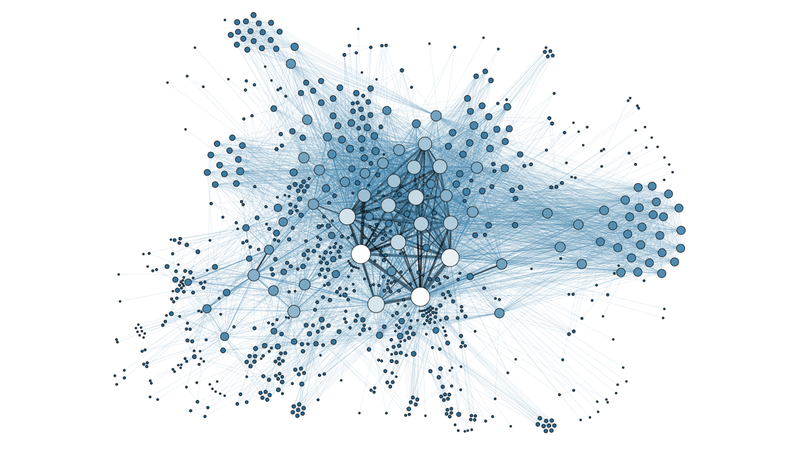In which we ponder human self organization.

A graph of a social network. Martin Grandjean Creative Commons Attribution-Share Alike 3.0
While the events of the last four years and certainly the first week of 2021 caused some members of my family to give way to despair or pessimissm, my work on the California Local project over the last year has had the opposite effect, inspiring both hope for the future and deep respect for our ancestors for inventing and tinkering with Democracy over the last 2500 years.
Our site sits on top of a database of Community Groups and Government entities, and it was in my early research into how the different entities are organized and operate (so as to model them in the database) that I started to appreciate the vast number of average citizens involved in civic administration.
Indeed, as I first surveyed all the local government web sites, and even more as I started coding and doing data entry of so many appointed bodies, committees, county grand juries and all the appointees and board members and jurists, most serving unpaid, I became amazed at the sheer amount of responsible citizenry going on quietly in the background.
Responsible citizenry in that individuals in communities feel personally driven to step up and put in the work to make things better.
This human impulse toward betterment is also reflected in the number and diversity of local Community Groups working to keep our less fortunate brothers and sisters fed, clothed and sheltered, who are working to address climate and environmental justice issues, and who are working in all ways to improve well-being and to reduce suffering.
It extends in a crazy virtuous cycle of individuals and groups working toward the betterment of betterment.
An example of this may be found in a simple pamphlet written by Henry Martyn Robert and first published in 1876, Robert's Rules of Order, which has since become the universal structure for meetings and discussions in which citizens get together to get things done.
A more modern example can be found in Linus Torvalds, the originator of the Linux operating system, and in the Open Source movement in general. Open Source is how geeks volunteer: They create useful tools to make things easier for people who use tools, which is everyone. An underappreciated facet of our modern, digital economy is that it is running on trillions of dollars worth of volunteer labor and intellectual property.
Given the turmoil of the pandemic, and the divisions stressing our political fabric, it's easy to lose sight of the two aspects of our messy human nature which propel us in our arc of progress: We have an impulse to self organize into cooperating groups, we have an impulse to make things better.
The genius of democracy is that it's a political system well suited for people to collectively make things better. Yeah, it's messy, it's imperfect, it's clunky. But it works.
California Local aspires to help it work better by being a campfire around which we connect, share knowledge, chew over the matters of the day, and coax our better angels into the night sky to paint tomorrow's dawn.